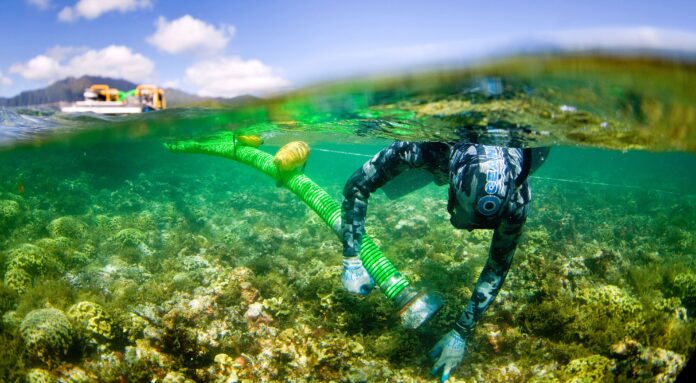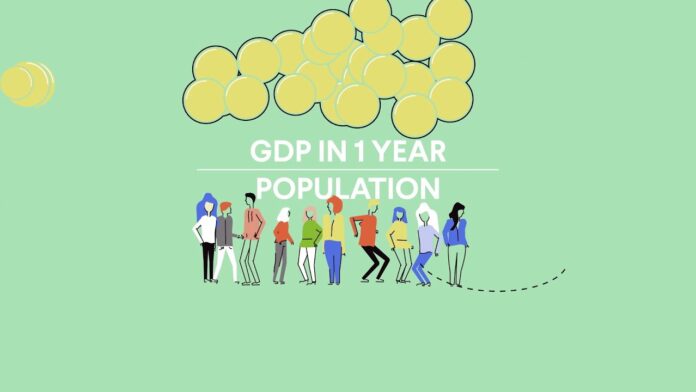Our planet is a magnificent symphony of life, but the harmony is at risk of being disrupted. The need for nature preservation goes beyond just protecting the beauty and wonder around us – it is crucial for the survival of our planet and ourselves. With the increasing threats of climate change, deforestation, and unsustainable exploitation of resources, it is essential for us to take action and make a difference in preserving the natural world. In this article, we will discuss some essential tips for nature preservation that can help protect our planet and ensure a sustainable future.
Reduce, Reuse, and Recycle
The first step towards nature preservation is reducing our consumption and waste. By reducing our use of resources, we can decrease the demand for their extraction, which often leads to environmental destruction. One way to do this is by practicing the 3 R’s – reduce, reuse, and recycle.
Reduce
Reducing our consumption means using fewer resources and producing less waste. It can be as simple as turning off lights when not in use or using reusable bags instead of plastic ones. We can also reduce our carbon footprint by choosing products with minimal packaging and opting for eco-friendly alternatives.
Reuse
Instead of throwing away items after one use, we can find ways to reuse them. For example, using refillable water bottles instead of single-use plastic bottles or repurposing old clothes instead of buying new ones can greatly reduce our waste production.
Recycle
Recycling is the process of converting waste materials into new products. By recycling, we can reduce the amount of waste sent to landfills and conserve resources. It is essential to properly sort and clean recyclables to ensure they can be effectively recycled.
Conserve Water

Water is a precious resource, and its scarcity is becoming a growing concern globally. Conserving water not only helps preserve this vital resource, but it also reduces energy consumption and the release of greenhouse gases. Here are some simple ways to conserve water in our daily lives:
Fix Leaks
A small leak may not seem like a significant issue, but over time, it can waste a lot of water. Regularly check for leaks in faucets, toilets, and other household plumbing. Fixing these leaks can save hundreds of gallons of water per year.
Use Water-efficient Appliances
Investing in appliances that use less water, such as low-flow showerheads and toilets, can significantly reduce our household’s water consumption. These appliances are designed to maintain their performance while using less water.
Practice Responsible Gardening
Watering lawns and gardens accounts for a significant portion of household water usage. To conserve water, choose drought-resistant plants and use mulch to retain moisture in the soil. Collecting rainwater for watering plants is also an eco-friendly option.
Use Energy-Efficient Products

The production and consumption of energy have a significant impact on the environment. By using energy-efficient products, we can reduce our carbon footprint and help mitigate climate change. Here are some ways to incorporate energy-efficient practices into our daily lives:
Switch to LED Bulbs
LED bulbs are more energy-efficient than traditional incandescent bulbs and last longer. They may be more expensive upfront, but they save money in the long run due to their energy efficiency and longer lifespan.
Unplug Electronics When Not in Use
Even when turned off, electronics still consume energy if they are plugged in. Unplugging them when not in use can save a considerable amount of energy and reduce our electricity bills.
Opt for Renewable Energy Sources
Renewable energy sources, such as solar and wind power, are becoming increasingly accessible and affordable. Choosing these renewable options for our homes or businesses can greatly reduce our reliance on fossil fuels and decrease our overall environmental impact.
Support and Volunteer for Environmental Organizations
There are numerous organizations dedicated to environmental preservation and conservation. These organizations work towards protecting natural habitats, advocating for sustainable practices, and raising awareness about critical environmental issues. By supporting and volunteering for these organizations, we can contribute to their efforts in preserving our planet.
Donate
Donating to environmental organizations is an effective way to support their cause. These donations help fund research, conservation projects, and educational programs that contribute to nature preservation.
Volunteer
Volunteering our time and skills is another way to make a difference. Many environmental organizations rely on volunteers for various tasks, such as organizing events, conducting surveys, or participating in clean-up efforts. Volunteering not only helps the organization but also allows us to connect with like-minded individuals and learn more about environmental issues.
Plant Trees and Support Afforestation
Forests play a crucial role in maintaining the Earth’s ecological balance. They provide habitats for countless species, regulate the climate, and act as carbon sinks by absorbing carbon dioxide from the atmosphere. However, deforestation has led to the loss of these vital ecosystems. Afforestation, the planting of trees in areas where there were previously none, is an essential step in rebuilding our forests and preserving our planet.
Plant Trees
We can contribute to afforestation efforts by planting trees in our own communities. Trees not only improve air quality and reduce erosion, but they also provide shade, attract wildlife, and add beauty to our surroundings.
Support Afforestation Projects
Many organizations and companies have initiatives for reforestation and afforestation. By supporting these projects financially or through volunteering, we can help restore forests and mitigate the effects of deforestation.
Reduce Carbon Footprint by Using Public Transport or Biking
Transportation is one of the leading contributors to greenhouse gas emissions. By reducing our reliance on personal vehicles, we can reduce our carbon footprint and decrease air pollution. Here are some ways to decrease our dependence on cars:
Use Public Transportation
Using public transportation, such as buses or trains, is a more eco-friendly option than driving alone. It reduces the number of vehicles on the road and decreases carbon emissions.
Bike or Walk
If possible, choosing to bike or walk instead of driving can greatly reduce our carbon footprint. Not only is it better for the environment, but it also benefits our physical health.
Educate Others About the Importance of Nature Preservation
Raising awareness about environmental issues and the importance of nature preservation is crucial in creating a sustainable future. By educating ourselves and others, we can inspire positive change and encourage others to take action. Here are some ways to educate others about nature preservation:
Share Knowledge and Information
Sharing articles, documentaries, and other resources about environmental issues can help raise awareness and educate others. We can also engage in discussions and debates to spread knowledge and promote critical thinking.
Lead by Example
By incorporating eco-friendly practices into our own lives, we can set an example for others to follow. When people see the positive impact of these practices, they may be more inclined to adopt them themselves.
Support Sustainable and Ethical Products and Practices
Our consumer choices have a significant impact on the environment. By supporting sustainable and ethical products and practices, we can create a demand for these options and encourage companies to adopt more eco-friendly methods. Here are some ways to support sustainability:
Choose Sustainable Products
When shopping, look for products that are sustainably sourced, made from recycled materials, or have minimal packaging. These products not only reduce our environmental impact but also support companies that prioritize sustainability.
Eat Responsibly
The food industry has a massive impact on the environment, from deforestation for agriculture to the emissions from livestock. Choosing to eat locally sourced and organic products can greatly reduce our carbon footprint and support sustainable farming practices.
Conclusion
Nature preservation is crucial for the survival of our planet and ourselves. By implementing these essential tips, we can contribute to protecting the environment and preserving its beauty for future generations. Small changes in our daily lives can have a significant impact on the health of the planet. It is up to each of us to take responsibility and make a difference in protecting our planet’s symphony of life.









